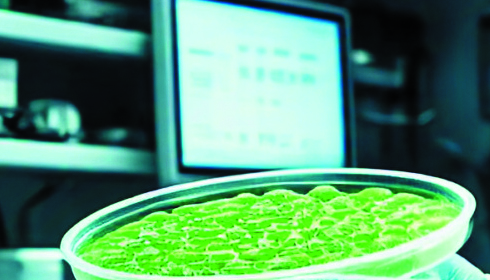
Procalcitonin Testing Fails to Reduce Antibiotic Duration in Children: Study
A recent investigation from the UK, featured in The Lancet, has surprised many by questioning how procalcitonin (PCT) testing helps doctors decide on antibiotic treatment for children who are in the hospital with suspected bacterial infections. The study was the biggest of its kind, but it showed that PCT-guided treatment did not shorten the time patients needed intravenous (IV) antibiotics when compared to standard care. This discovery is important for the worldwide battle against antimicrobial resistance (AMR). It is especially relevant in areas like South Asia, where AMR poses a serious public health challenge.
The BATCH trial, a national research project, aimed to assist children in hospitals. Its goal was to cut down on the unnecessary use of antibiotics, which is a big cause of antibiotic resistance. The National Institute for Health and Care Research (NIHR) funded a study that examined nearly 2,000 children in 15 hospitals across the UK. The goal was to see if adding PCT testing to regular care could help reduce the length of antibiotic treatments while still keeping patients safe.
The earlier studies showed that PCT-guided treatment might have some advantages. However, the trial found that there are big challenges to putting it into practice. The test was safe, but it cost more than usual methods. It also had trouble fitting into the way clinics usually work. Clinicians not following diagnostic algorithms made it harder for the system to work well.
Professor Enitan Carrol from the University of Liverpool shared that the study did not show any benefits from the extra procalcitonin test. However, he believes there are valuable lessons for future trials using biomarkers in the NHS.
The results show that bringing new diagnostic tools into healthcare systems is not an effortless task. There are many challenges to consider. To make things work well, it's not enough to have the right technology. It also needs strong programs for managing antibiotics; thorough training for doctors; and a better grasp of the behaviours that affect how medical choices are made. Professor Céu Mateus, who works at Lancaster University, shared her thoughts on research. She expressed that it is truly fulfilling to participate in research that has the potential to transform health care delivery and improve hospital resource utilisation.
The study shows important results for South Asia, a place that faces many challenges due to AMR. A study from Lancet in 2022 revealed that South Asia faced the highest death rate due to antimicrobial resistance (AMR) worldwide, with 389,000 direct deaths recorded in 2019. In India, more than 200,000 people die each year because of AMR. This issue is caused by things like the sale of antibiotics without proper rules, poor sanitation, and many infectious diseases affecting the population.
In South Asia, many newborns face serious health challenges. One major issue is antibiotic-resistant infections, which are a top reason for the deaths of babies. In India, this problem leads to nearly 60,000 newborn deaths every year. The region's healthcare systems frequently face overload. They frequently depend on broad-spectrum antibiotics, which makes the problem of resistance even worse.
Challenges in Implementation: In the UK trial, it was clear that bringing biomarker-based diagnostic tools, such as PCT tests, to South Asia would encounter major challenges. These include high costs, a shortage of trained clinicians, and weak antimicrobial stewardship programs.
Hospitals are not the only places where AMR affects the world. New studies about Staphylococcus aureus show that this bacteria, which often causes infections in hospitals, has amazing abilities to adapt and resist treatments. A recent article in Nature Reviews Microbiology from 2023 explains how S. aureus manages to escape the body's immune responses and gain resistance mutations. This makes treating the infection more difficult.
These results are important for South Asia, a region where S. aureus infections are common. The hospitals in the region are very crowded, and there are not enough infection control measures. This situation makes it easy for resistant strains to spread.
South Asia needs to tackle AMR in a smart way. This means using different strategies together to fight the problem effectively. Hospitals should work on improving their AMS programs. This will assist them in monitoring and controlling the use of antibiotics. By focusing on diagnostic stewardship, they can make sure that prescriptions are based on solid evidence instead of just guesses. Public awareness campaigns are very important. Many people have wrong ideas about antibiotics, like thinking they work against viral infections, which leads to misuse. Investing in diagnostics and research is very important. It focuses on creating affordable tools that fit specific needs. Also, it includes using implementation science to overcome challenges in places with limited resources. Governments must enforce stricter regulations on the sale of antibiotics without a prescription. They should also encourage drug companies to create new medicines that fight infections. A complete method that brings together these parts can assist South Asia in tackling its increasing AMR crisis.